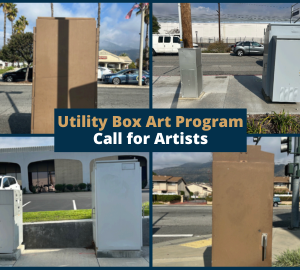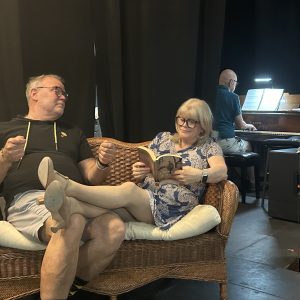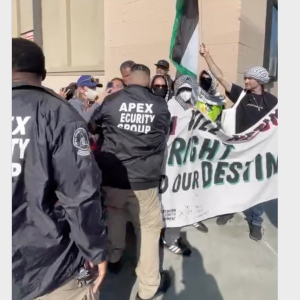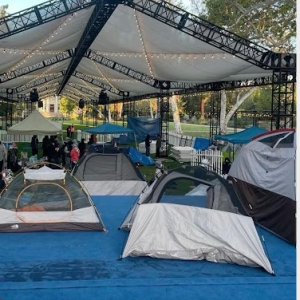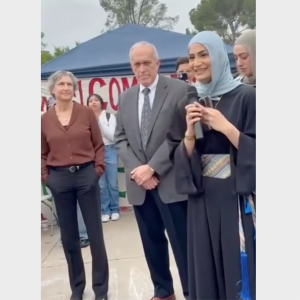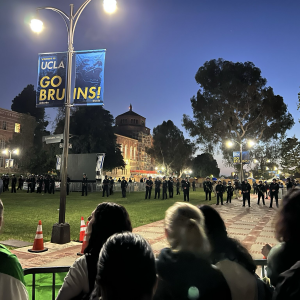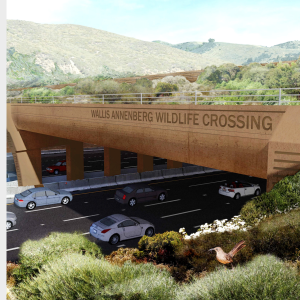 View Winners →
View Winners → Public Outcry Coerces Council to Re-Evaluate Public Hearing Process


In response to the lengthy Kimpton/YWCA public hearing on Aug. 15, residents flooded the city’s mailbox with letters of complaint, regarding the current public hearing process. – Photo by Terry Miller
By Gus Herrera
The Pasadena City Council recently took the time to re-assess its public hearing procedures, following overwhelming public outcry in response to the Kimpton/YWCA Hotel Project public hearing on Aug. 15.
The controversial project, which was ultimately approved by council and will most likely begin construction within the next six months, was confronted with significant public opposition.
READ MORE: Kimpton/YWCA Hotel Project Recieves “Green Light”
The weekend before the project went before council, dozens of protesters and preservationists gathered in front of city hall to stage a “picnic protest.”
Resistance carried over into the council chambers – according to longtime community activist Christle Balvin, the Kimpton/YWCA Project public hearing packed the house, “If the council chambers seat roughly 160 people, every seat was filled, with about 20 folks clinging to the walls.”
Unfortunately, all those in attendance had to wait several hours before being allowed to speak. According to staff’s report, the council meeting began at 6:31 p.m. and the public hearing commenced at 7:22 p.m. Although once the public hearing opened, speakers had to wait an additional three and a half hours, while city officials and staff made their presentations, to which council responded with several comments/inquiries.
After all was set and done, the public hearing lasted four hours and 44 minutes, according to city staff’s report.
In the following days, the city received numerous complaints “related to the length of time the public was required to wait for the public comment period of the hearing.”
According to city staff, complaints went beyond criticizing public hearing procedures, insinuating that city officials might have played a role in icing out public comments, “It was suggested or perceived that the city may have purposefully conducted a protracted city staff presentation, which was further extended due to questions posed by the city council.”
In response, Mayor Tornek directed staff to review the public hearing from Aug. 15 to “identify potential changes that might address the equity issues raised by members of the public.”
Staff compiled a report examining the time spent during public hearing, concluding that the “public hearing process is consistent with that of other local jurisdictions (based on responses from the cities of Santa Monica, Glendale, Burbank, and Beverly Hills), and also generally mirrors the format of a court proceeding given the quasi-judicial nature of public hearings.” Furthermore, staff stated that, given the complexity of the Kimpton project, the length of time spent prior to public comments, “appear[ed] to be reasonable and appropriate.”
Current procedure reserves the public comment portion of public hearings until all staff presentations and comments/questions from council members conclude. There are no time limits enforced – once council is satisfied, then members of public may say their piece.
City staff presented council with four potential actions to consider, ranging from maintaining the status quo (i.e. take no action and maintain current procedures), to placing time limits on commentary or letting public comment precede council’s deliberation.
In the end, council decided to take no action, “My reaction, frankly, is that the process is a legitimate process,” said Mayor Tornek.
Council Member Steve Madison concurred, “I would tend to agree with you mayor. I have seen lengthy discussions and 1 a.m. decisions my whole career here.”
Despite agreeing that the process might benefit from shortened staff presentations, council and the mayor seemed to feel that circumstances surrounding the Kimpton/YWCA project were just as much to blame as the procedure itself. Not only where many individuals staunchly opposed to the project, but many of the public speakers had already attended several commission meetings in the weeks prior, “If they had won, maybe they wouldn’t have minded so vigorously,” said Tornek.
“Hearing fatigue, I guess that’s what you can call it,” said Council Member Margaret McAustin.
“I think the problem was just the lateness of the hour. For many people, it exceeds their stamina and I don’t know what we can do about that … good coffee would be great,” said Madison.











